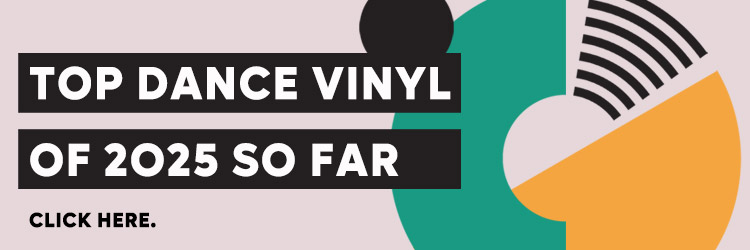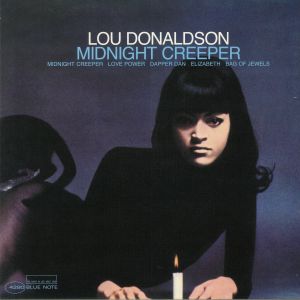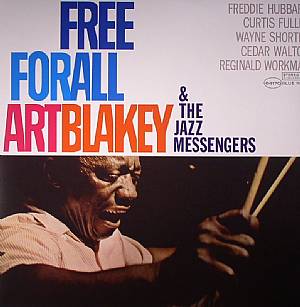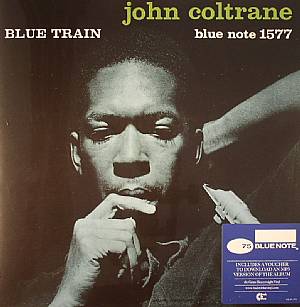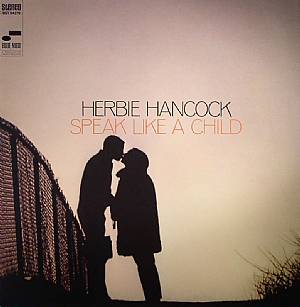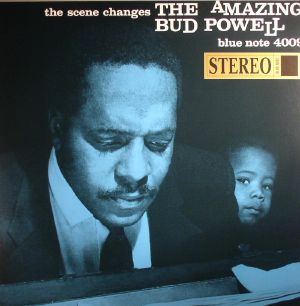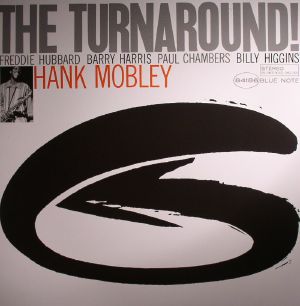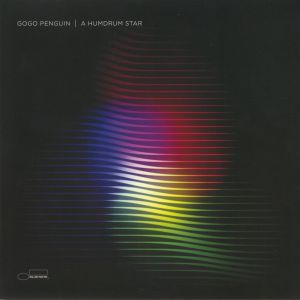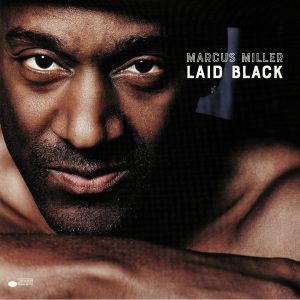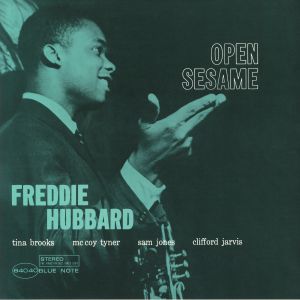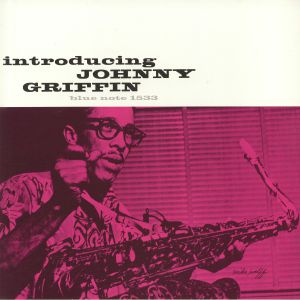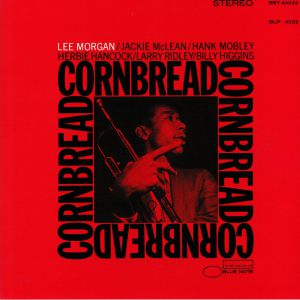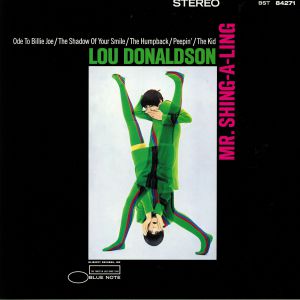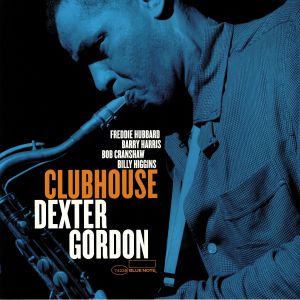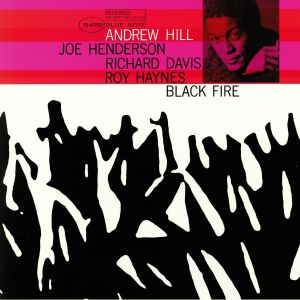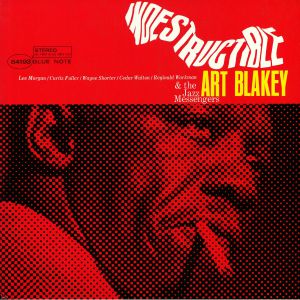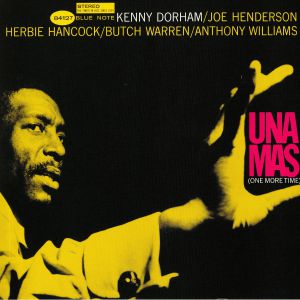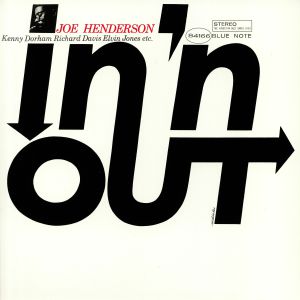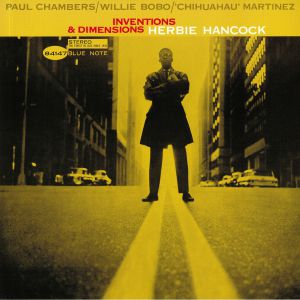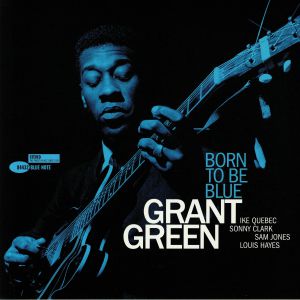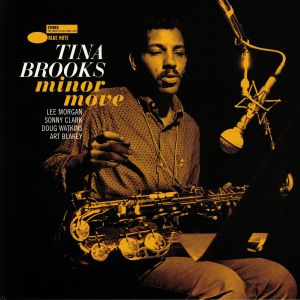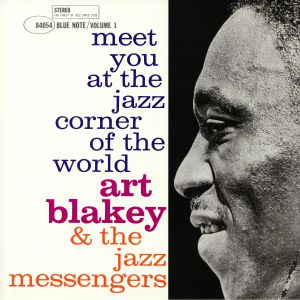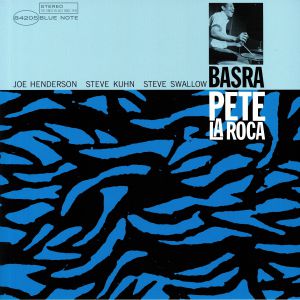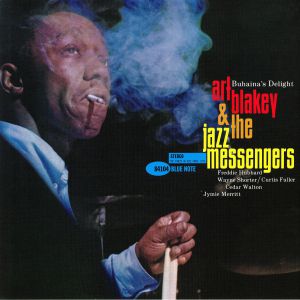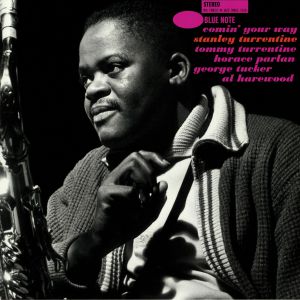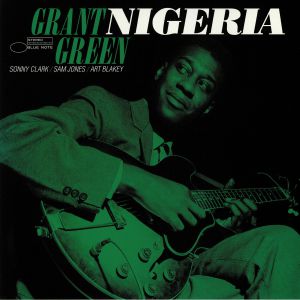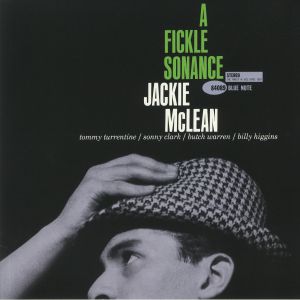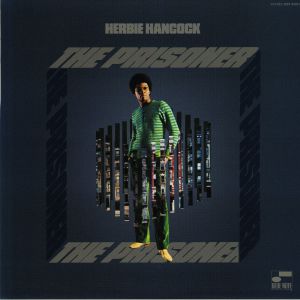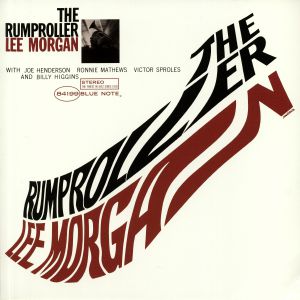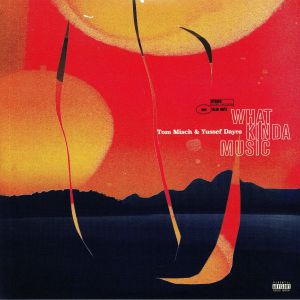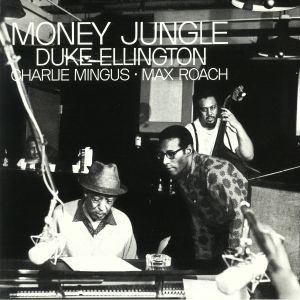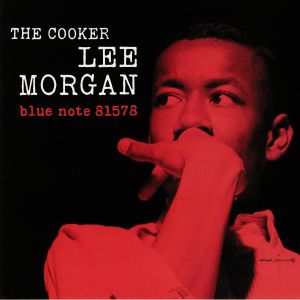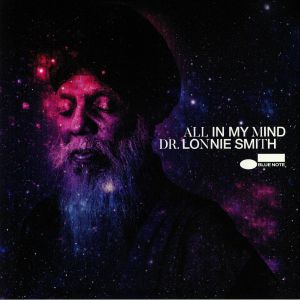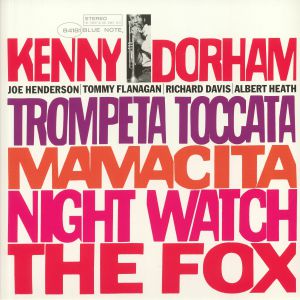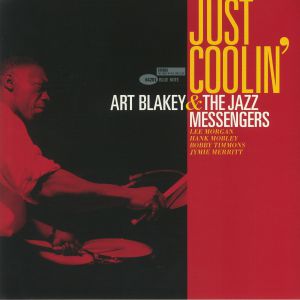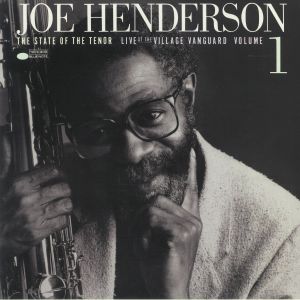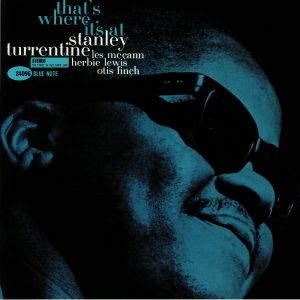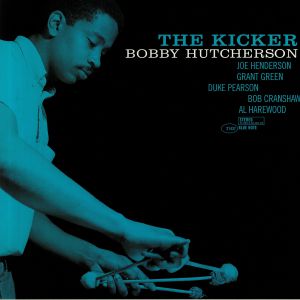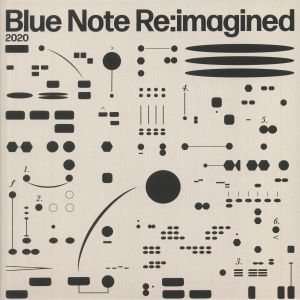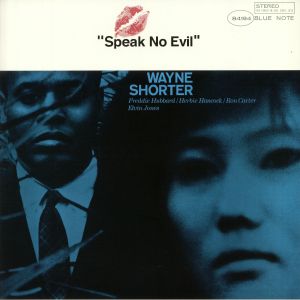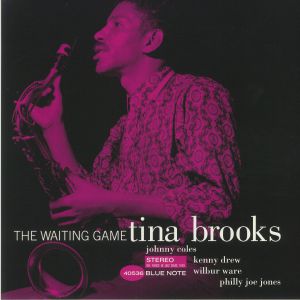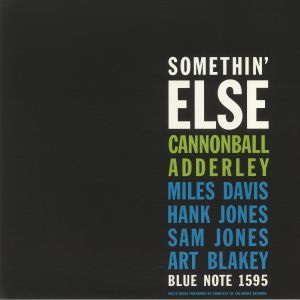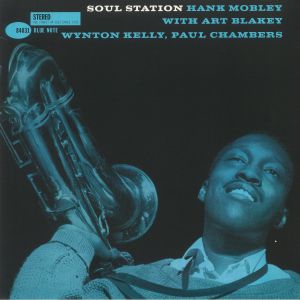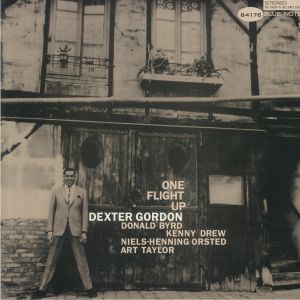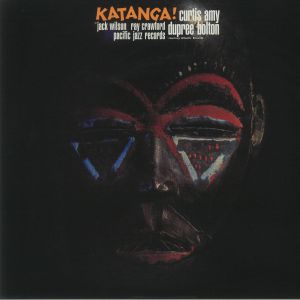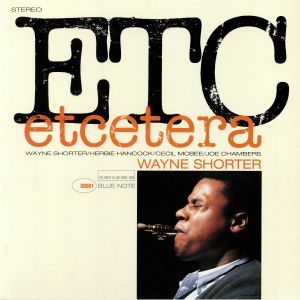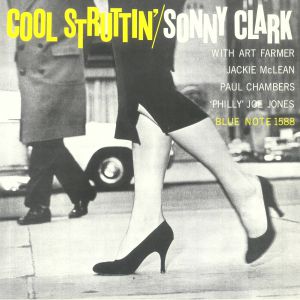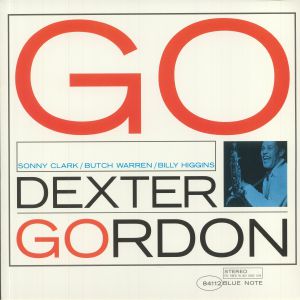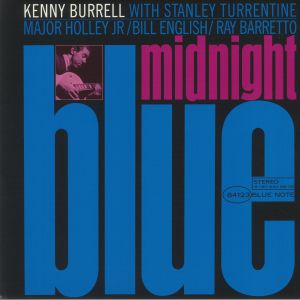in stock $24.94
Cat: 377125 3. Rel: 04 Apr 14
Jazz
in stock $24.77
Gespielt von: Juno Recommends Jazz, DJ ROCCA
in stock $25.23
in stock $32.50
in stock $35.32
Gespielt von: Juno Recommends Jazz
in stock $35.60
A Humdrum Star (gatefold heavyweight vinyl 2xLP)
Cat: 671643 0. Rel: 09 Feb 18
Broken Beat/Nu Jazz/Nu Soul
Review: Since bagging the 2014 Mercury Music Prize for sophomore set V.20, GoGo Penguin has become one of the most talked-about outfits around. The self-confessed "very modern piano trio" has succeeded largely due to their far-sighted ability to fuse more traditional jazz and classical music sounds with a surprisingly wide palette of influences, most notably dancefloor-focused 21st century electronic music. On A Humdrum Star, their fourth full length, the Manchester threesome has decided to take a "freer" and more "liberated" approach. The resultant music is every bit as exciting, entertaining and beguiling as you'd expect, with the full-throttle, high-octane dancefloor jazz of "Raven", atmospheric and undulating "Bardo" and gently jazz-funk influenced brilliance of closer "Window" amongst the highlights.
… Read moreGespielt von: Juno Recommends Broken Beat Nu Jazz, Calamity Jade (Willwork4funk)
in stock $47.37
in stock $46.81
Contours (Tone Poet Series) (reissue) (gatefold 180 gram audiophile vinyl LP)
Cat: 772489 9. Rel: 14 Mar 19
Jazz
Gespielt von: DJ ROCCA
in stock $51.85
Open Sesame (reissue) (heavyweight vinyl LP)
Cat: 774506 6. Rel: 14 Jun 19
Broken Beat/Nu Jazz/Nu Soul
Gespielt von: Juno Recommends Broken Beat Nu Jazz
in stock $29.44
Gespielt von: Juno Recommends Jazz
in stock $31.39
Cornbread (Tone Poet Series) (gatefold 180 gram audiophile vinyl LP)
Cat: 775005 1. Rel: 21 Jun 19
Jazz
Gespielt von: Juno Recommends Jazz
in stock $40.08
Mr Shing A Ling (Tone Poet Series) (remastered) (180 gram vinyl LP)
Cat: 773885 1. Rel: 21 Jun 19
Jazz
Gespielt von: Juno Recommends Jazz
in stock $52.98
Clubhouse (Tone Poet Series) (reissue) (gatefold 180 gram audiophile vinyl LP)
Cat: 771877 6. Rel: 28 Jun 19
Jazz
Gespielt von: Juno Recommends Jazz
in stock $39.80
Black Fire (Tone Poet Series) (reissue) (gatefold 180 gram audiophile vinyl LP)
Cat: 775202 1. Rel: 26 Jul 19
Jazz
Gespielt von: Mukatsuku Records Chart, Juno Recommends Jazz
in stock $34.20
Cat: 776473 9. Rel: 13 Sep 19
Jazz
in stock $22.41
Gespielt von: DJ ROCCA
in stock $32.24
in stock $25.23
in stock $32.24
in stock $43.16
Minor Move (Tone Poet Series) (reissue) (gatefold 180 gram audiophile vinyl LP)
Cat: 778684 5. Rel: 25 Oct 19
Jazz
in stock $52.98
Cat: 807387. Rel: 15 Nov 19
Jazz
in stock $22.41
in stock $29.44
in stock $29.44
Comin' Your Way (Tone Poet Series) (reissue) (gatefold 180 gram audiophile vinyl LP)
Cat: 779127 6. Rel: 28 Feb 20
Jazz
Gespielt von: Juno Recommends Jazz
in stock $30.84
Gespielt von: Juno Recommends Jazz
in stock $37.56
in stock $25.23
Gespielt von: Juno Recommends Jazz
in stock $33.35
Gespielt von: Juno Recommends Jazz
in stock $22.41
Review: As fast-rising underground stars in their own right, you'd expect any collaborative album from soul-fired South London singer/songwriter/beat-maker Tom Misch and prolific jazz drummer Yussef Dayes (best known for his now long-running collaboration with Kamaal Williams) to be rather good. "What Kinda Music" is, with the pair mixing and mangling elements of soul, jazz-funk, electronica and jazz, a set that defies easy categorisation. Both musicians exceed themselves throughout, with tipsy electronics, sweeping strings, bass, effects-laden guitars, woozy synth lines and Misch's heartfelt, soul-flecked vocals offering a perfect foil for Dayes' loose-limbed, headline-grabbing drumming.
… Read moreGespielt von: Fradinho, Juno Recommends Broken Beat Nu Jazz, Flip Fantazia, Juno Records Staff Picks
in stock $26.34
Money Jungle (Tone Poet Series) (reissue) (gatefold 180 gram audiophile vinyl)
Cat: 847069. Rel: 24 Apr 20
Jazz
Gespielt von: Juno Recommends Jazz
in stock $36.51
Gespielt von: Juno Recommends Jazz, Originals
in stock $40.08
Gespielt von: Juno Recommends Jazz
in stock $35.60
Gespielt von: Juno Recommends Jazz
in stock $30.84
Review: Jazz fans are in for a real treat here as Blue Note unleash a never before heard studio album by Art Blakey & The Jazz Messengers. It was recorded back in 1959 at the legendary Rudy Van Gelder's Hackensack studio and has Lee Morgan, tenor saxophonist Hank Mobley, pianist Bobby Timmons, and bassist Jymie Merritt all playing as part of the recording. As the title suggests, it's a breezy, super cool record with seductive trumpets and icy drums all next to neat keys that encourage you to gently bop. After months of waiting, it proves more than worth all the anticipation.
… Read moreGespielt von: Juno Recommends Jazz
in stock $25.23
The State Of The Tenor: Live At The Village Vanguard Volume 1 (Tone Poet Series) (180 gram audiophile vinyl LP)
Cat: 860056. Rel: 28 Aug 20
Jazz
Gespielt von: Mukatsuku Records Chart, Juno Recommends Jazz
in stock $42.89
Gespielt von: Juno Recommends Jazz
in stock $52.98
The Kicker (Tone Poet Series) (reissue) (gatefold 180 gram audiophile vinyl LP)
Cat: 865925. Rel: 11 Sep 20
Jazz
Gespielt von: Juno Recommends Jazz
in stock $43.44
Review: Here's a great example of a simple idea, brilliantly executed. It sees artists from the UK's contemporary musical underground - most, though not all, with roots in jazz - re-make tracks from the Blue Note catalogue in their own personal style. The result is a series of sublime and sometimes surprising covers, with highlights including Jorja Smith's deliciously bluesy and soulful nu-jazz take on St Germain's 'Rose Rouge', a sumptuous interpretation of Donald Byrd's smooth jazz-funk classic 'Wind Parade' courtesy of Jordan Rakei, Skinny Pelembe's Afro-tinged cosmic jazz version of the Sam Rivers Sextet's 'Illusion', a spacey, ultra-deep re-imagining of Eddie Henderson's 'Galaxy' by Alfa Mist and an incredible, classic-sounding recording of Dinah Washington favourite 'I'll Never Stop Loving You' by Yazmin Lacey.
… Read more in stock $30.08
My Point Of View (Tone Poet Series) (reissue) (gatefold 180 gram audiophile vinyl LP)
Cat: 881133. Rel: 30 Oct 20
Jazz
Gespielt von: Juno Recommends Jazz
in stock $49.05
Review: 1964 was a big year for Wayne Shorter. To start with he was still part of Art Blakey & The Jazz Messengers and played on some fo their key albums and he also made his solo label debut before joining the iconic Miles Davis Quintet, cementing a line-up that would become one of the seminal bands in jazz history. Speak No Evil was a record he made in Van Gelder's studio on Christmas Eve 1964 and is a real masterpiece. Here six of the shortened originals are presented on a 180g vinyl as part of the all analog Blue Note Classic Vinyl Edition series.
… Read more in stock $25.23
The Waiting Game (Tone Poet Series) (reissue) (gatefold 180 gram audiophile vinyl LP)
Cat: 893419. Rel: 29 Jan 21
Jazz
Review: Tina Brooks' final album was one of his most underrated. The tenor saxophonist really brought the goodness on The Waiting Game, which she record din 1961 but did not put out until 1999. The undervalued player might have played a big part in the hard bop era but only one of his Blue Note sessions ever made it out. Here he is joined by Johnny Coles on trumpet, Kenny Drew on piano, Wilbur Ware on bass, and Philly Joe Jones on drums, and wrote five of the six tunes himself. It's a soulful sound with highlights like modal masterpieces 'Dhyana' and 'David the King.'
… Read moreGespielt von: Juno Recommends Jazz
in stock $51.85
Review: Cannonball Adderley Somethin' Else gets the Tone Poet audiophile treatment now on this latest reissue from Blue Note. With the help of standout additional artists Miles Davis, Art Blakey, Hank Jones and Sam Jones, this is a record with a deep musical heritage and plenty of fine moments. The include the stunning performance of 'Autumn Leaves' and a fine title track along with the more romantic, slow shuffling and late night cuddliness of 'Dancing In The Dark.' Mastered by Kevin Gray from original master tapes and pressed to 180g vinyl, this is a must buy for jazz fans.
… Read more in stock $26.63
Review: Blue Jazz's on going Tone Poet Series - which is about reissuing classic jazz on heavyweight, audiophile quality vinyl - throws out another gem here with the Hank Mobley classic Soul Station. Hank started out as a pianist before moving to the tenor sax aged 16. He put plenty of emotion and intensity into every note he played and during the years 1955-1970 he fronted more than 25 Blue Note albums as well as being a sideman on many others. This record captures him at the peak of his powers with a lyrical playing style and length, passionate solos.
… Read moreGespielt von: Juno Recommends Jazz
in stock $36.72
One Flight Up (Tone Poet Series) (reissue) (gatefold 180 gram audiophile vinyl LP)
Cat: 328710 1. Rel: 07 May 21
Jazz
Gespielt von: Juno Recommends Jazz
in stock $43.71
Katanga! (Tone Poet Series) (reissue) (180 gram audiophile vinyl LP)
Cat: 351492 4. Rel: 04 Jun 21
Jazz
Gespielt von: Juno Recommends Jazz
in stock $49.05
Etcetera (Tone Poet Series) (gatefold 180 gram audiophile vinyl LP)
Cat: 771877 7. Rel: 03 Jun 21
Jazz
Gespielt von: Juno Recommends Jazz
in stock $44.84
Review: Sonny Clark's Cool Struttin' album is a jazz classic. The artist himself shone bright for a brief but intense period of creativity, much like greats before him such as Charlie Parker and Fats Navarro. His intricate playing and hard swing mentality makes for music filled with nuance and detail but sadly he never got the recognition he deserved during his short life (he died aged 31). He put out seven records in all on Blue Note and played with the likes of John Coltrane and Donald Byrd. This memorable session was recorded by Rudy Van Gelder and features a quintet made up of altoist Jackie McLean, trumpeter Art Farmer, bassist Paul Chambers and drummer Philly Joe Jones.
… Read moreGespielt von: Juno Recommends Jazz
in stock $22.41
Review: American jazz tenor saxophonist Dexter Gordon was one of the most influential early bebop musicians alongside the likes of Dizzy Gillespie and Charlie Parker. His 1962 album Go on Blue Note was not actually recorded in a club, but in a fashion in the studio that replicated that informal environment. The legendary Rudy Van Gelder oversaw proceedings at his Van Gelder Studio and had Sonny Clark on piano, Butch Warren on Bass and Billy Higgins on drums. Next to tunes Dexter wrote himself are covers of Cole Porter's 'Love For Sale' amongst other highlights.
… Read more in stock $23.26
in stock $26.63

 USD
USD




